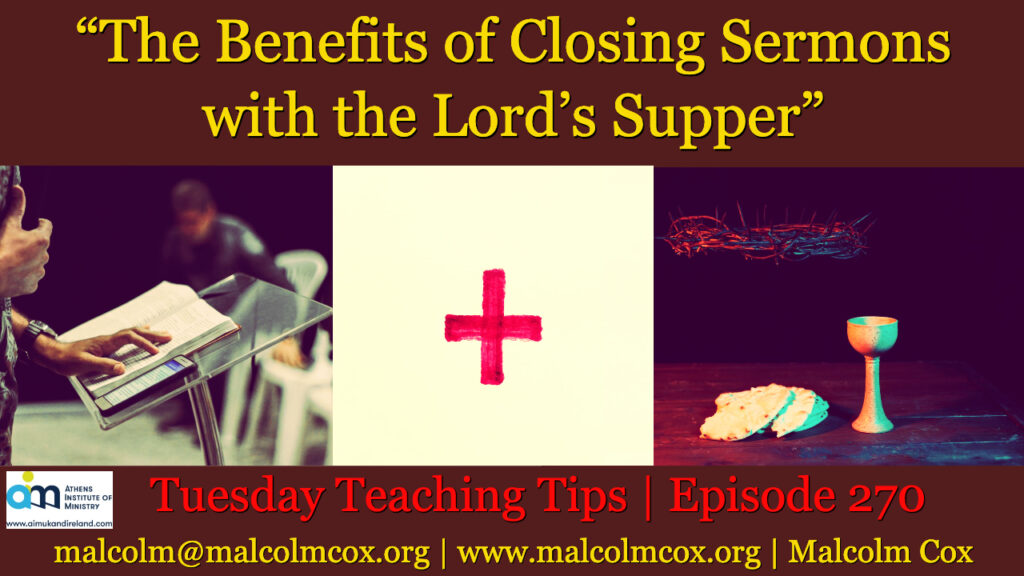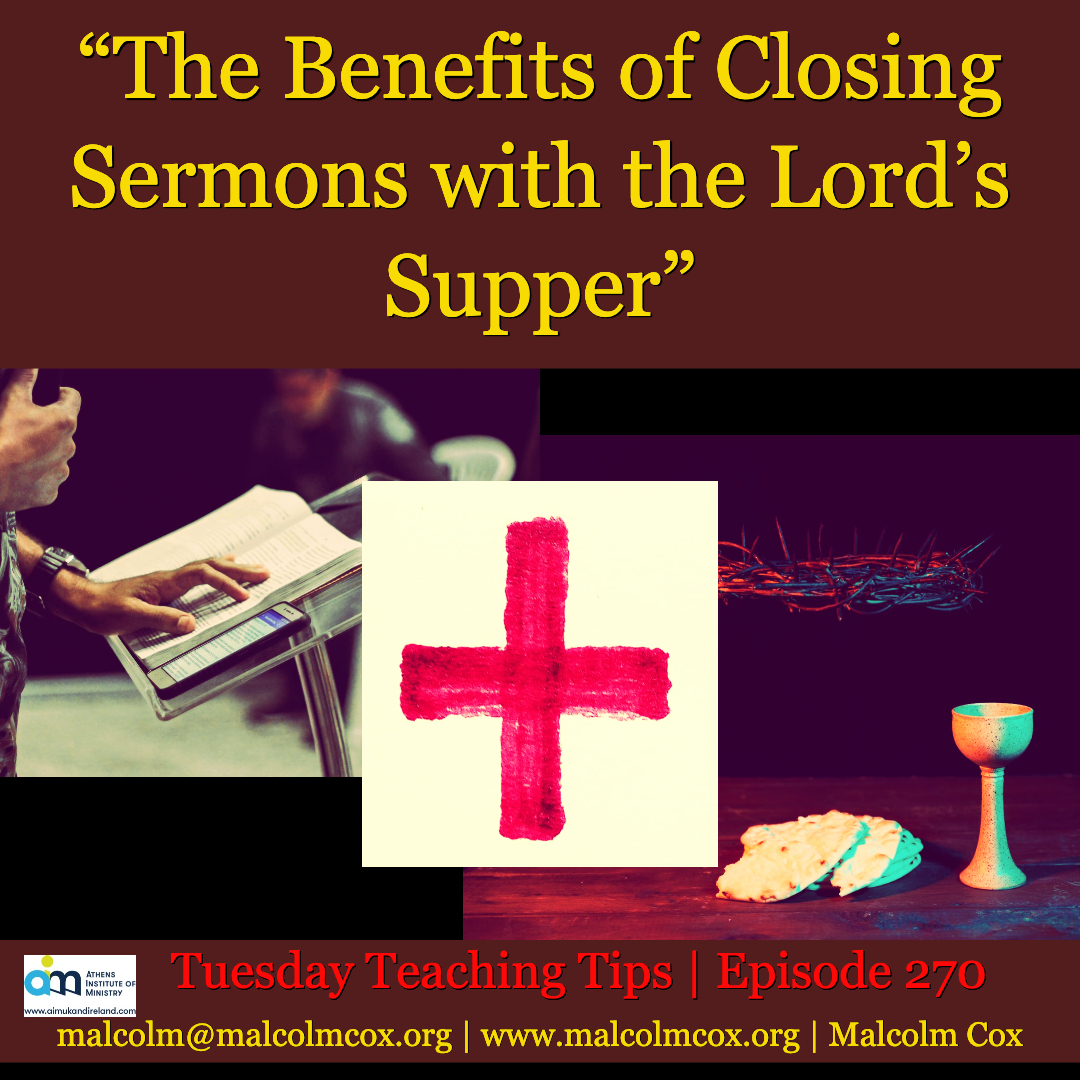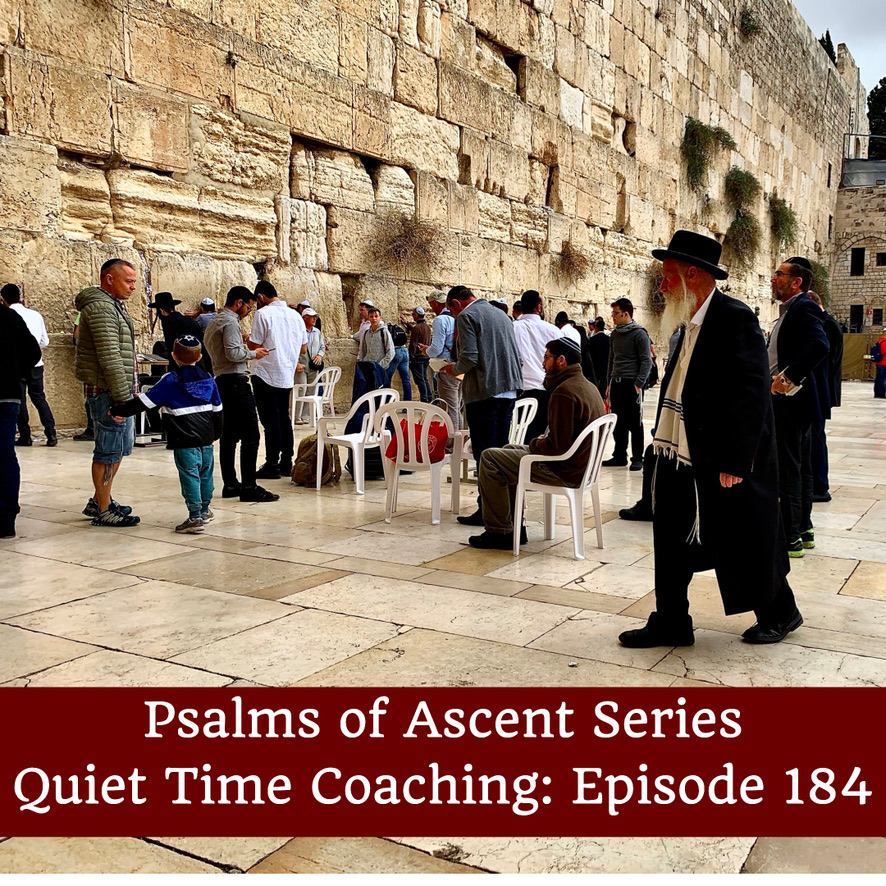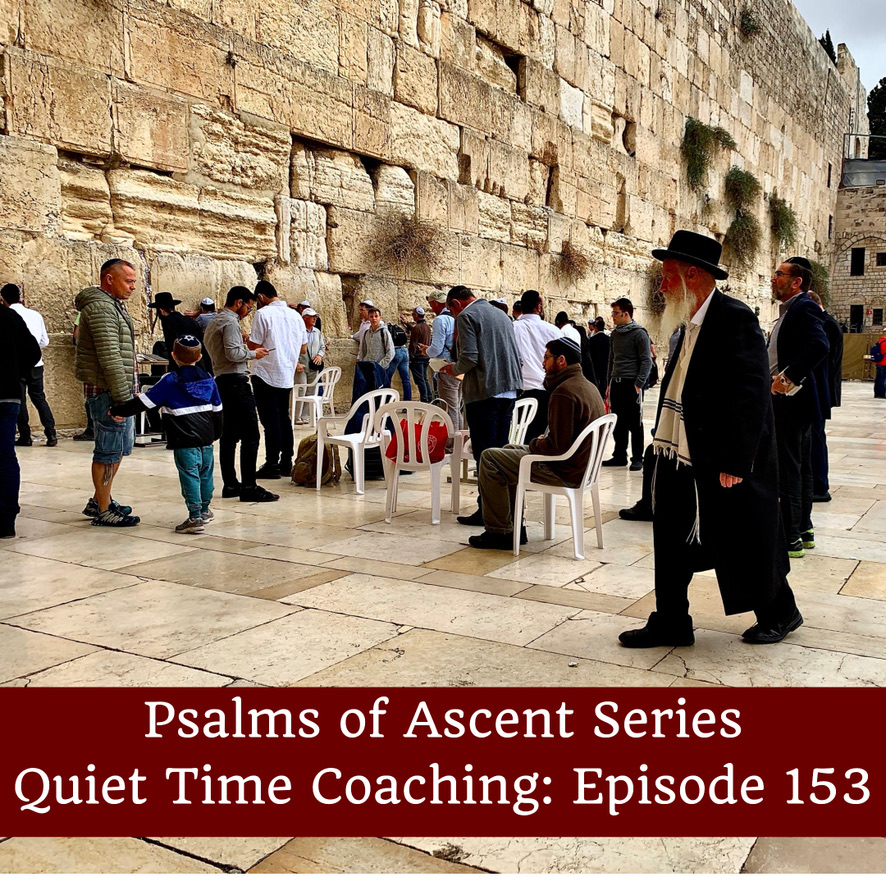Tuesday Teaching Tips | Episode 270

For the last two years I have been combining the sermon and communion. Or more accurately, concluding my sermons with reflections on the Lord’s supper. Why have I done this? What are the benefits and drawbacks?
Perhaps you have heard of or seen the so-called ‘sermunion’. On occasion it has been employed to save time. I have heard this approach despised and denigrated as not being a real sermon, or a real communion. Are these criticisms fair?
Today let me offer a few thoughts about benefits and drawbacks. Please tell me what you think.
Benefits
1. Avoiding too many ‘lessons’ in one service. Sometimes we get three or every four lessons in a service. A welcome ‘lesson’, a HOPE talk ‘lesson’, a communion ‘lesson’, and a sermon – possibly even some of our prayers are more like lessons! The sermon/communion approach reduces the number of ‘lessons’ by ensuring that the sermon and Lord’s supper have the same theme. This connectedness seems healthy.
2. Moving from the Scriptures to the table seems right. Now we know why we are celebrating, and what we are remembering.
3. Jesus gets the honour, not the preacher.
4. A discipline the speaker. This approach forces me to ask whether Jesus is the point of my lesson? When I prepare the communion conclusion to a sermon it becomes obvious whether the lesson is really about Jesus or not.
5. Keeps focus on Jesus, the cross and the resurrection
6. Ensures the congregation’s focus is on Jesus not themselves as they reflect on the lesson and its application to their lives.
Drawbacks
1. Keeps the focus on the one speaker. A separate person sharing their reflections on the Lord’s Supper provides a wider variety of voices and perspectives as well as enabling training for more speakers.
2. It could be argued that a separate talk around the Lord’s Supper gives it greater prominence.
3. Might not be appropriate after a rousing sermon inspiring us to action.
Have you seen this done well? Have you seen it done badly? What is happening in your local congregation and why is it done that way?
Remember, the way we do the Lord’s Supper and sermons is attached to our traditions. There’s not a great deal of specificity in the New Testament. We have flexibility, but it’s important that we do what we do with an intent to glorify God and inspire spiritual maturity in one another.
Please add your comments on this week’s topic. We learn best when we learn in community.
Do you have a question about teaching the Bible? Is it theological, technical, practical? Send me your questions or suggestions. Here’s the email: [malcolm@malcolmcox.org](mailto:malcolm@malcolmcox.org).
If you’d like a copy of my free eBook on spiritual disciplines, “How God grows His people”, sign up at my website: http://[www.malcolmcox.org](http://www.malcolmcox.org/).
Please pass the link on, subscribe, leave a review.
“Worship the LORD with gladness; come before him with joyful songs.” (Psalms 100:2 NIV11)
Keep calm and carry on teaching
God bless, Malcolm



